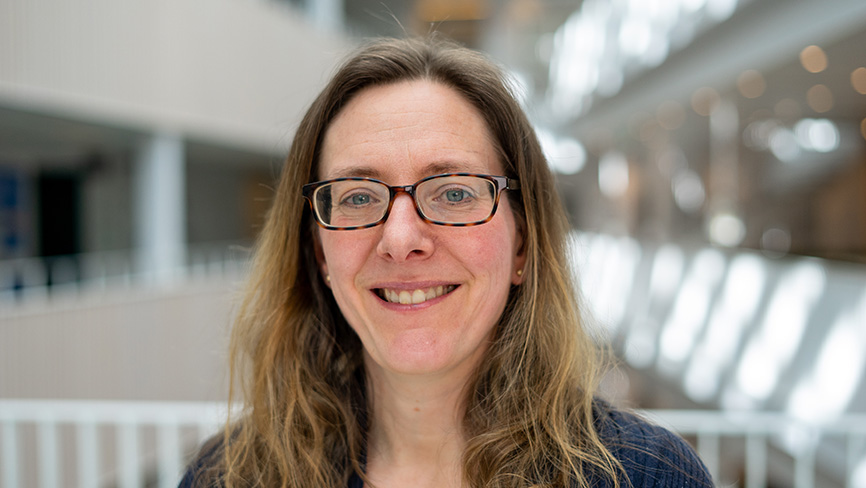“A Lifelong Learning course is a great way to reach out with current research and knowledge.”

Andrea Eriksson, Associate Professor at the Ergonomics division, is motivated by sharing her research and knowledge with professionals. She will now give her Lifelong Learning course, Leadership and sustainable works, for the second time.
Who are the applicants?
“There has been quite a large variety of course participants with different backgrounds, but many work either within HR or occupational health care or work themselves as managers with work environment responsibility. Common to all is that they want to learn more about how leadership affects health and commitment among employees.”
Why did you initiate the course Leadership and sustainable works?
”Many work organisations experience that they need support in which concrete efforts they can make to create a more sustainable and health-promoting leadership. For many years, I have researched questions relating to this very thing. This course will become yet another way to support key people in work organisations in working with leadership issues in a research-based way.
What motivates you to create courses for professionals?
”I would like to contribute to a better work environment – this is a very good way to reach out with current research and knowledge. I myself get very much out of taking part in all of the participants’ different experiences and practical examples. In the course, the participants get to work with producing action plans for improved leadership within their own work organisations, which is very inspiring to me as a course leader.
What tips would you like to give to those who have never put together an independent course?
”My course is a shorter version of an existing master’s course, which is a good tip. Also, think about scheduling the course so that it is possible to combine working life with studies. I have limited the number of mandatory elements and have tried to place lectures and seminars in late afternoons. In addition, the course is completely digital with a lot of lectures recorded.
Professionals want to apply the knowledge from the course directly in their work. This can be good to think of already when designing the content of the course. Perhaps the participants can apply learnings from the course in their own work already during the course – for example in the form of home assignments?”
What is the greatest challenge in putting together and managing a course?
”It is easy to apply to an independent course but many drop out because of lack of time. This makes it hard to plan and to know how many course participants are really going to take the course.
Another challenge is that everyone has a different background and some can be unused to the requirements of academic courses. Some might never have studied at KTH before and are unused to the digital tools and platforms we make use of. Then, it is important to give detailed instructions regarding the demands made in the courses, for example in managing references, and to have an initial introduction to the digital learning environment at KTH.
Read a FAQ about Lifelong Learning here .
Text: Åsa Karsberg, translation to English by Sabina Fabrizi
